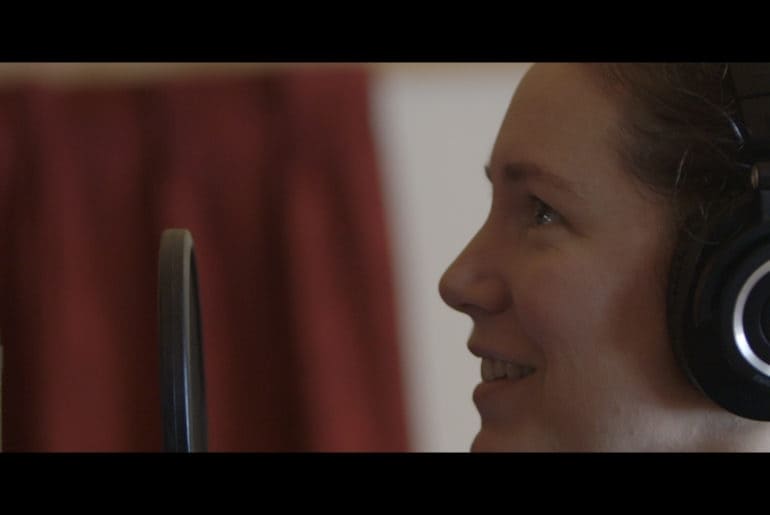
October 10 is World Mental Health Day and according to the Canadian Mental Health Association: “Mental illness indirectly affects all Canadians at some time through a family member, friend or colleague. By age 40, about 50 percent of the population will have or have had a mental illness.”
The National Film Board will be releasing this Saturday at the Atlantic International Film Festival in Halifax The Song and The Sorrow. Through the lens of Canadian filmmaker Millefiore Clarkes following Juno award winning musician Catherine MacLellan, the film is a journey to understand Catherine’s father, Canadian folk legend Gene MacLellan’s mental illness which led to his suicide.
Produced by Rohan Fernando and Paul McNeill, and executive produced by Annette Clarke for the NFB’s Quebec and Atlantic Studio, The Song and The Sorrow contains archival footage and intimate interviews with friends, family members, and musicians who knew and played with Gene—including Anne Murray, Lennie Gallant, and the late Ron Hynes. The film reveals a troubled and loving man who was never at ease with fame and money. The land and people of Prince Edward Island inspired Gene MacLellan’s music and are a vibrant presence in Clarkes’ documentary.
In an interview both Catherine and Millefiore talk intimately about the film.
How did you both collaborate in making this film?
Millefiore: “Focusing The Song and the Sorrow on Gene’s struggle with mental health was Catherine’s initiative. When I first approached her about making this film, the focus was more on the creative legacy between a parent and child, about the complex relationship and inspiration derived from a parent with a large personality and artistic temperament. I was also interested in how sadness and loss can precipitate creative expression. However, I was nervous to ask her about his suicide. I didn’t want to exploit her personal tragedy. But Catherine was at a point in her life, 20 years after Gene’s suicide, where she was looking for ways to talk about her experience. She got back to me immediately suggesting that we focus on Gene’s struggles as well as her exploration of how that has affected her and her family.”
How many threads to this film are there?
Millefiore: Quite a few. A daughter’s story of her father’s legacy of mental health struggles and suicide; Catherine’s story of her own struggles as a result; Gene MacLellan’s rich and enigmatic musical and personal legacy; and a bit of Canadian music history woven in there. It could have been a much longer film. There were so many paths to follow. It was always an endeavour to contain the film and keep it focused while touching on all these threads.”
What is the message the film wants to deliver?
Catherine: “The biggest message I’d like people to get from this film is how important it is to talk about mental health, and how in doing that we can all be a part of reducing the stigma that keeps so many people from finding the help they need. I hope that people get a sense of the lasting effects of a suicide and how we really need to continue the conversations surrounding mental health to help the people all around us who may be suffering.”
What did you enjoy the most about the making this film?
Catherine: Interviewing Lennie Gallant, Ron Hynes and Marty Reno was a really nice experience for me. They were all close to him and had interesting experiences and thoughts to share. Getting to visit with Anne Murray was a bit intimidating for me at first, she’s such a legend and I hadn’t met her since I was a little kid. She shared some really great stories and was very kind and generous with us.
Showing at the Atlantic International Film Festival on Saturday, September 15.



